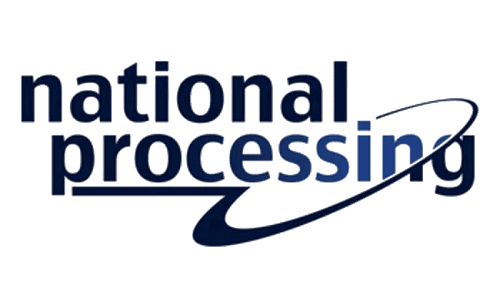Credit card processing rates are typically expressed as a percentage of the sale plus a small per-transaction fee. Most rates average 2% to 4% of each transaction. The processor considers several factors to determine the processing fees it charges you, including your monthly processing volume, your average ticket size, your business’ industry and your processing history. It may also consider your business and personal credit.
The credit card processing industry is very competitive. Companies want to work with you, especially if you’ve been in business for a few years and process a high volume of payments each month. Many are open to negotiating a deal with you and advertise that they’re willing to meet or beat your current rates. But first, you need to understand what costs go into credit card processing rates and which are negotiable. All rates have three parts:
- Interchange fees: This is a nonnegotiable rate set by the card networks and every processor pays the same amount. There are hundreds of rates, arranged by industry, card type, sales ticket amount and acceptance method. You can view interchange rate tables on the card networks’ websites.
- Assessment fees: Like interchange rates, these are nonnegotiable and every processor pays the same amount. These rates vary by card brand.
- Processor’s markup: This is the only negotiable part of the processing rate.
Here’s why you need to know this information:
- If a company says it has lower interchange rates than other processors, it’s not true. All processors pay the same amount.
- If a company posts links to interchange rate tables, indicating that this is what you’ll pay, you need to know that this is only a portion of the rates you’ll pay the processor.
Second, you need to identify which pricing model is best for your business. For most businesses, industry experts recommend interchange-plus pricing, but credit card processing companies prefer tiered pricing because they make more money with it. Some processors give you a choice of pricing models and may allow you to switch so that you can evaluate for yourself which one provides the best savings for your business. Here are the three most common:
Credit Card Processing Pricing Models
| Tiered pricing | Interchange-plus pricing | Flat-rate pricing |
|---|
Most plans include the following tiers, with different rates for debit and credit cards at each tier:
- Qualified rate: Regular cards, swiped
- Midqualified rate: Rewards, swiped
- Nonqualified rate: Premium rewards, swiped rewards, keyed
| Interchange-plus pricing has two parts:
- Wholesale rate (interchange and assessment). These are not negotiable.
- Processor’s markup (the percentage and per-transaction fee). You may be able to negotiate this part of the rate.
| Flat-rate pricing is expressed as one of the following:
- Flat percentage of the transaction
- Flat percentage plus a per-transaction fee
|
| It’s hard to know how much you’re paying the processor – or if you’re overpaying – because each processor decides which rates go into each tier. | You can see the processor’s markup, which makes it easier to determine if you’re getting a good deal. This is usually the most cost-effective pricing model. | Flat rates are higher than the prices in the other models but may save you money, because most have no additional fees and no contract. |
| This pricing model is a good choice if your customers prefer paying with debit cards. | This is the pricing model most experts recommend for small businesses. | This is the best pricing model for businesses with small tickets or low monthly volume. |
Tiered Pricing
This is the most common pricing model, but it’s widely criticized by industry experts because it’s not as transparent as interchange-plus pricing. It attempts to simplify the interchange table by combining interchange rates, assessment fees and markups and then sorting them into tiers. Tiered pricing is also referred to as “bundled pricing” or “bucket pricing.”
Most processors categorize these tiers as qualified, midqualified and nonqualified transactions, although some plans may have only two or up to six tiers, with separate rates for credit and debit cards. The factors that determine the transaction category include the type of card ― whether it’s debit or credit and if it’s a regular, rewards, corporate, government-issued or international card ― and how the transaction is processed, whether you accept the card in person using a card reader, accept it online or key it in manually.
Some processors have a special lower rate for PIN debit transactions.
Critics note a variance between processors as to which interchange rates fall into each tier, which makes it difficult to compare pricing between services. We found this to be true in our research as some processors categorize rewards cards as midqualified and others define them as nonqualified. This variance in tier categorization, sometimes referred to as “inconsistent buckets,” makes it difficult to determine how much you can expect to pay above the set costs for your processing:
- Low rates advertised on processor websites are usually qualified debit rates. These only apply to nonrewards debit cards accepted in person with a card reader.
- Qualified debit and qualified credit may be the only rates the sales rep quotes you, so it’s important to ask about the number of tiers, what they cost, which types of cards and acceptance methods each tier includes and what actions may cause a transaction to be downgraded to a lower tier.
- The tiered pricing model is best for businesses whose customers prefer paying by debit card.
Interchange-Plus Pricing
Most industry experts prefer this model because it promotes pricing transparency. The interchange-plus pricing model may also be called “pass-through pricing” or “cost-plus pricing,” because the processor passes the interchange rates and assessment fees to you at cost and adds a markup.
The processor’s markup stays the same no matter what card type your customers pay with, so you can see how much you’re paying the processor. This makes it easier to spot savings when you’re comparing services. Also, many of the companies that offer interchange-plus pricing post their rates on their websites, which saves you time in gathering rates from the companies you’re interested in learning more about:
- Many companies will quote you interchange-plus rates if you specifically request it, but some only offer this type of pricing to established customers, requiring you to process with them for a certain amount of time before you qualify. The best companies offer this pricing to all their customers.
- The rate you’re quoted is only the markup. You’ll pay this amount in addition to the actual interchange rate and assessment fee.
- Interchange-plus pricing is best for most businesses, and it’s the pricing model recommended by industry experts.

Some processors such as Square offer free equipment. Source: Square
Flat-Rate Pricing
This is the simplest pricing model. Most processors that use this model charge a fixed percentage rate for each sale, regardless of card type. Alternatively, some processors charge a fixed percentage rate and a per-transaction fee. There are usually different rates for cards accepted in person and online.
Mobile credit card processing companies commonly use this pricing model. There are typically no monthly or annual fees, making it a good option for small businesses that don’t process enough transactions to cover these costs. Most of the time, the only other fee is a chargeback fee, which is only triggered when a customer disputes a transaction.
- If your business processes less than $2,500 per month, some credit card processors will refer you to a processor with flat-rate pricing.
- Most companies that offer this pricing structure set you up as a submerchant under their master merchant accounts, allowing for fast setup.
- Flat-rate pricing is best for businesses that have small sales tickets or process a low volume of credit card transactions each month.




























